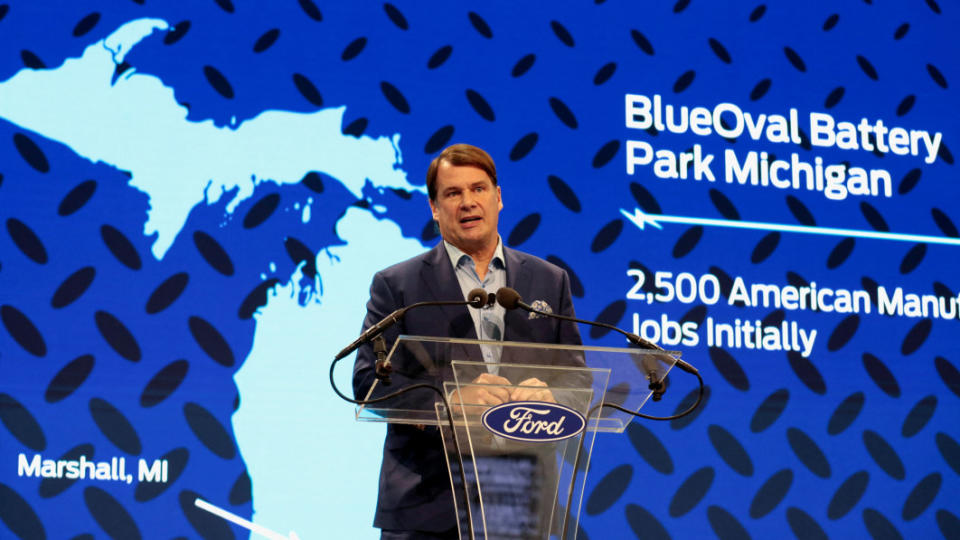Ford CEO Jim Farley on EV transition: 'Batteries are the constraint'

Companies such as Ford (F) are collectively pouring hundreds of billions of dollars into electric vehicles (EVs).
But as the industry transitions toward zero carbon emissions, battery supply chains could stand in the way of those ambitions.
"First of all, batteries are the constraint here," Ford CEO Jim Farley told Yahoo Finance Live (video above). "Both lithium and nickel are really the key constraining commodities. We normally get those from all over the world — South America, Africa, Indonesia. We want to localize that in North America, not just the mining but the processing of the materials."
Farley pointed out that even raw metals mined in the U.S. often get sent back to China to be processed, something the U.S. is actively trying to counter through grants and additional investments.
"The big change is going to be onshore all that capability of processing but also mining back in the U.S." Farley added. "It will be a huge job, just like it has for semiconductors."
In 2021, electric vehicles made up about 10% of all vehicle sales globally, according to the International Energy Agency (IEA). By 2030, BloombergNEF projects that half of all U.S. car sales will be EVs, spurred on by Inflation Reduction Act tax credits.
As demand for electric cars and trucks increases — and there would have to be an estimated 300 million electric cars on the road in 2030 in order to stay on track with benchmark net-zero goals — so too will demand for the precious minerals used in batteries.
That, in turn, could test the global supply chains that extract and process minerals.
The U.S. has outlined five minerals it deems "critical" to the EV transition that have supply chains at risk: lithium, cobalt, manganese, nickel, and graphite. Already, lawmakers and those in the mining industry have raised alarms about mineral supply.

 Yahoo Autos
Yahoo Autos 
